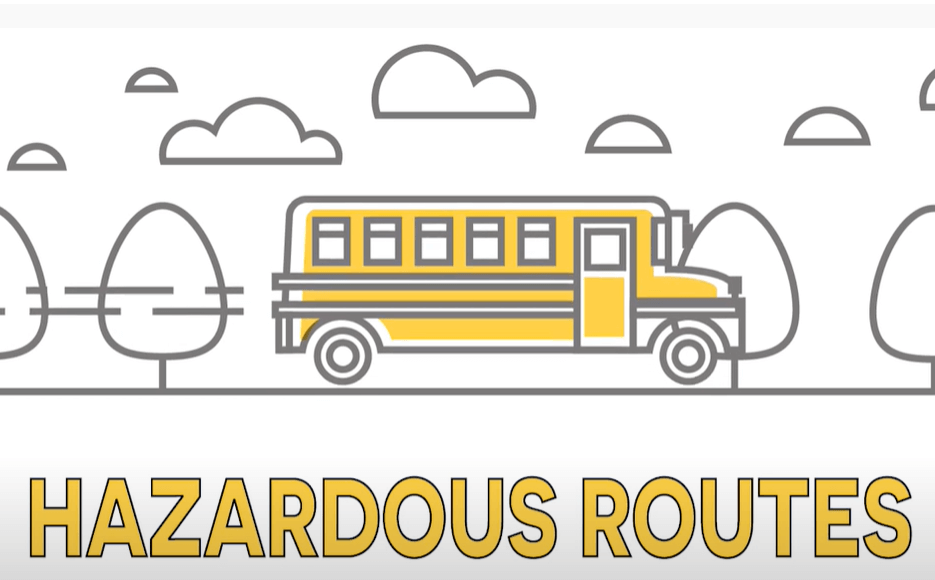
By LYNETTE HAALAND, Four Points News
Leander ISD is working on hazardous routes for the district for next school year and a couple residents of Steiner Ranch have weighed in, hoping to get an official hazardous route designation.
But at last week’s March 24 meeting, the LISD Board of Trustees heard recommendations from staff not to make any changes to its hazardous routes for next year. That may not be the final word, however, since the board will consider the recommendations at its April 7 meeting.
The district received more than a hundred responses during its community feedback period, many hoping to get a hazardous route designation so that their kids could be picked up by a school bus.
One resident zoned for Steiner Ranch Elementary gave feedback on why they want a hazardous route designation.
“We moved into The Retreat at Steiner Ranch neighborhood and support a bus route being established from our neighborhood to Steiner Ranch Elementary School. We have three toddlers that will be attending kindergarten with the first starting in the fall of 2023. The walk from the neighborhood to the school is definitely not safe for young kids to walk alone.”
But the route called SRE NBCD 2690 got an evaluation score of 280 by LISD staff, which is below the hazardous route designation.
Using a scoring system, staff evaluated routes. A score over 475 can be considered a hazardous route.
“If it scores 476 or higher, it is considered hazardous,” according to Rachel Acosta, LISD spokesperson.
Another resident shared feedback: “No sidewalks for kids to walk. Unsafe for kids
walking. Kids have been seen walking in bushes due to cars driving within (Meritage) apartment complex without any sidewalks. Very, very
unsafe.”
But that route, SRE NBCD 2695, LISD staff deemed safer than the other Steiner route. It was evaluated with a score of 105, which is also below the hazardous route designation.
“I have the hardest time when we have hazardous routes come up in discussions,” said Trish Bode, LISD president. “We have family and community members who feel the commute to and from school is hazardous. Yet, through the scoring system, they are not eligible for transportation. That requires sensitivity.”
State law requires school districts to provide bus service to students living more than two miles of their assigned schools. In Leander ISD, families living closer than two miles are in the “Not Eligible for Transportation Zone,” or NETZone. Students in the NETZone are only provided bus service if their route to school is rated as hazardous.
LISD families were notified of the annual evaluation on January 7 and over a month, families shared feedback with the district.
From February 7 to March 7 the district evaluated and reviewed areas for hazardous routes based on community feedback and department knowledge of areas that may be impacted by planned or pending changes.
On March 24, at the LISD Board meeting, district staff gave a presentation and after delivering the report, stated: “We are not recommending the addition or discontinuance of any LISD transportation service within the 2-mile NETZone for the 2023-23 school year. We recommend no changes to any transportation service areas of any LISD transportation service within the 2-mile NETZone for the 2023-23 school year.”
The hazardous routes scoring matrix, approved by the board in 2019, is used to score students’ walking routes to school to determine if it meets the criteria for bus service for those students living within two miles of their assigned campus.
Routes in the NETZone automatically qualify for bus service when they
meet any of the following criteria:
• Crosses an arterial street (as defined by the municipality’s roadway plan) or
highway without controls (stop sign, crosswalk, traffic signal or crossing guard);
• aligns alongside a road with a speed limit more than 45 mph; or
• crosses a railroad crossing.
“I appreciate staff’s tremendous work and dedication to community feedback. I hope we continue to look for innovative ways to address concerns,” Bode said.

